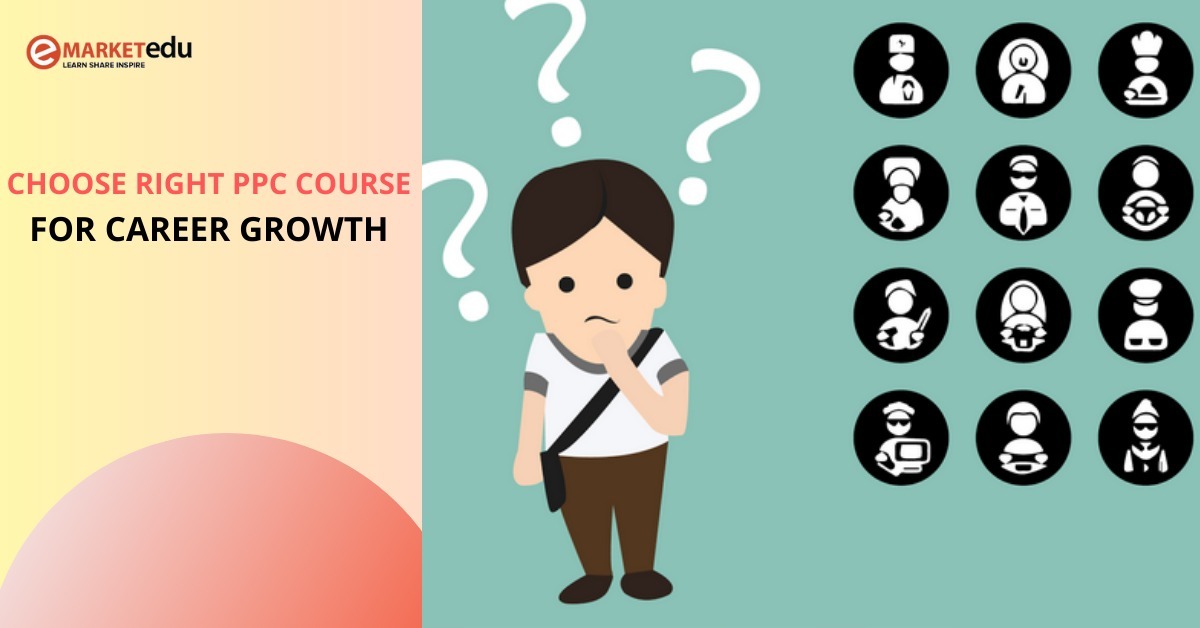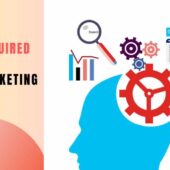Pay-per-click (PPC) advertising, in particular, has gained significant popularity due to its effectiveness in driving targeted traffic and generating leads. As a result, there is a growing demand for professionals skilled in PPC Advertising, leading to the rise of online PPC courses. If you’re considering a career in PPC or looking to enhance your existing skills, choosing the right PPC course online is important. This comprehensive guide will provide you with valuable tips on how to select the best PPC course that aligns with your career goals and growth aspirations.
Table of Contents
ToggleAbout PPC Course Online
Online PPC courses offer several advantages over traditional classroom-based learning:
- They provide flexibility, allowing you to learn at your own pace and fit your studies into your busy schedule.
- Online courses often have a global reach, enabling you to learn from industry experts regardless of your geographical location.
- The convenience of accessing course materials and interacting with instructors and fellow students online adds to the appeal of online PPC courses.
- Online Courses have become a popular choice for individuals seeking to acquire PPC skills or improve their existing knowledge.
Factors to Consider When Choosing an PPC Course Online:
When you are looking for different online PPC courses, it’s essential to consider the following factors to ensure you make a right decision:
- Accreditation and Reputation: Choose a course provided by a reputable institution or organization. Look for accreditations or certifications that validate the quality and credibility of the course. Research reviews and testimonials from past students to gauge their satisfaction and success after completing the course.
- Course Content and Curriculum: Examine the course content and curriculum to ensure it covers all the essential topics related to PPC. Look for comprehensive modules that include keyword research, campaign optimization, analytics, and other relevant areas. The course should provide a balanced mix of theory and practical applications.
- Instructor Expertise and Support: The knowledge and experience of the instructor can significantly impact the quality of your PPC course. Look for courses taught by industry professionals who have a proven track record in PPC advertising. A knowledgeable instructor will provide practical tips, and real-world examples to enhance your learning experience. Furthermore, ensure that the course offers adequate support channels such as discussion forums, email assistance, or live Q&A sessions, allowing you to seek clarification and guidance throughout the course.
- Learning Resources and Support: Assess the learning resources provided, such as video lectures, interactive quizzes, case studies, and supplementary reading materials. These resources should enhance your understanding of the subject matter and provide opportunities for practical learnings.
- Flexibility and Accessibility: Consider your own schedule and commitments when choosing an online PPC course. Look for courses that offer flexibility in terms of study time and duration. Some courses may have specific start and end dates, while others may allow you to begin at any time and progress at your own pace. Ensure that the course platform is user-friendly and accessible across different devices.
- Cost and Value for Money: Compare the cost of different online PPC courses and evaluate the value they provide. While it’s important to consider affordability, prioritize the quality and content of the course over price alone. Look for courses that offer a good balance between cost and the knowledge and skills you will gain from completing the course
How to Learn PPC Online?
There are several methods available for learning PPC online. Let’s explore some popular options:
- Online PPC Certification Courses: Enrolling in an online PPC Certification Course is a structured approach to learning PPC. These courses offer comprehensive curriculum, guided learning, and assessments to measure your progress. Look for courses that provide recognized certifications upon completion, as they can add credibility to your resume and demonstrate your proficiency to potential employers.
- Webinars and Workshops: Webinars and workshops provide an interactive learning experience and the opportunity to learn from industry experts in real-time. These sessions often cover specific PPC topics in-depth, offering practical assitance and strategies. Participating in webinars and workshops can expand your knowledge and allow you to network with professionals in the field.
- Mentorship Programs: Mentorship programs pair you with experienced PPC professionals who provide guidance and support as you navigate your PPC learning journey. Mentors can offer personalized feedback, share industry insights, and help you develop practical skills. Seek mentorship programs offered by recognized organizations or connect with professionals in the industry who are willing to mentor aspiring PPC specialists.
- Self-Study: Self-study involves researching and learning PPC concepts independently. You can utilize online resources such as blogs, tutorials, industry forums, and official documentation provided by PPC platforms. This method requires self-discipline and a proactive approach to acquire knowledge and hands-on experience through trial and error.
How to Build a Successful Career in PPC?
To start a successful career path in PPC, Here are some steps to get you on the right track:
- Mentors or Trainers: Having experienced mentors or trainers can significantly increase your PPC learning curve. Expert trainers with several years of teaching experience within the industry can provide guidance, share real-world examples, and help you navigate the complexities of PPC platforms and strategies. Learning from industry experts can save you time, prevent costly mistakes, and keep you updated with the latest trends.
- Gain Practical Experience: While learning PPC concepts is essential, practical experience is equally important. Consider working on real PPC campaigns, even if they are small-scale or for personal projects. This hands-on experience will give you insights into campaign optimization, ad performance analysis, and budget management.
- Build a Strong Portfolio: As you gain experience, build a strong portfolio showcasing your PPC skills. Include details of campaigns you have managed, the objectives achieved, and the impact on key performance indicators (KPIs). A compelling portfolio will make you stand out when applying for PPC-related positions.
- Stay Updated with Industry Trends: The digital marketing is continuously changing, and PPC is no exception. Stay updated with the latest PPC trends, algorithm changes, and best practices. Follow industry blogs, attend webinars, and join PPC communities to expand your knowledge and stay ahead of the competition.
- Network with Industry Professionals: Networking plays a vital role in advancing your career in PPC. Connect with industry professionals through LinkedIn, attend conferences, and join digital marketing communities. Building relationships with experienced individuals can open doors to job opportunities, mentorship, and in-depth knowledge.
- Apply for PPC Positions: Once you have acquired the necessary skills and built a strong portfolio, start applying for PPC positions. Update your resume to highlight your PPC expertise and include your certifications and achievements. Leverage job platforms like LinkedIn Jobs and Indeed to explore PPC job opportunities.
Essential Skills Needed for PPC Success:
To excel in PPC, it’s essential to possess certain skills that will drive your success in managing campaigns effectively. Here are some key skills to focus on:
- Microsoft Excel: Microsoft Excel is a powerful tool for PPC professionals. It allows you to analyze data, perform calculations, and visualize trends. Excel proficiency enables you to organize large amounts of PPC data, track performance metrics, and make data-driven decisions. Learning functions like pivot tables, VLOOKUP, and conditional formatting can enhance your PPC analysis capabilities.
- English for Ad Copywriting: Effective ad copy is essential for attracting attention and driving conversions. Being able to write catchy ad copy that rattracts your target audience is a valuable skill. Mastering English for ad copywriting involves understanding creative writing techniques, creating attention-grabbing headlines, and crafting concise yet effective ad descriptions.
- Analytical and Data Interpretation Skills: PPC requires strong analytical skills to interpret data and derive required results. You should be able to analyze campaign performance, identify trends, and make data-driven decisions to optimize your PPC strategies. Familiarize yourself with tools like Google Analytics and other PPC analytics platforms to effectively track and measure the success of your campaigns.
- Keyword Research and Analysis: Effective keyword research is very important for PPC success. You need to understand how to identify relevant keywords that align with your target audience and business goals. Learn how to conduct keyword research using tools like Google Keyword Planner and other keyword research tools. Analyze keyword competition, search volume, and relevance to select the most appropriate keywords for your campaigns.
- Ad Copywriting and Optimization: Writing an attractive ad copy is essential to attract clicks and drive conversions. Develop skills in writing persuasive and engaging ad copy that effectively communicates your value proposition. Understand the principles of ad copy optimization, including writing attractive headlines, utilizing keywords, and creating clear calls-to-action (CTAs).
- Campaign Management and Optimization: Learn how to effectively manage and optimize PPC campaigns. This includes setting up campaigns, ad groups, and targeting options. Understand bidding strategies, budget management, and ad scheduling to maximize your campaign’s performance. Continuously monitor and optimize your campaigns based on key performance indicators (KPIs) such as click-through rates (CTRs), conversion rates, and return on ad spend (ROAS).
- Conversion Tracking and Analytics: Being able to track conversions and measure campaign success is critical in PPC. Familiarize yourself with conversion tracking methods and implement conversion tracking codes on your website or landing pages. Use analytics tools to monitor and analyze conversion data to understand the effectiveness of your campaigns and make necessary adjustments.
- Continuous Learning and Adaptability: The field of PPC is dynamic and constantly evolving. To stay competitive, it’s important to cultivate a mindset of continuous learning and adaptability. Stay updated with industry trends, algorithm changes, and emerging PPC strategies. Engage in ongoing education, attend conferences, and participate in webinars to expand your knowledge and skills.
Conclusion
Remember, success in PPC starts with the right training. Choose wisely, invest in your future, and start your journey towards professional growth and achievement.
By enrolling in our online PPC courses, you’ll have the opportunity to learn from industry experts, gain in-depth knowledge of PPC concepts, and stay updated with the latest trends and techniques. At eMarket Education, our courses are designed to meet the needs of beginners and experienced professionals alike, helping you enhance your skills and take your career to new heights.





